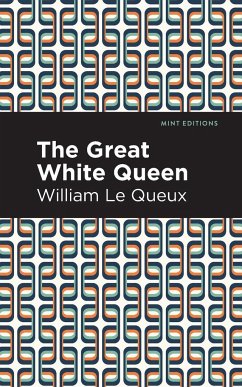The Great White Queen (1896) is an adventure novel by Anglo-French writer William Le Queux. Published at the beginning of Le Queux's career as a leading author of popular thrillers, The Great White Queen is a story of empire, myth, and war. Using his own research and experience as a journalist and adventurer, Le Queux crafts an accessible, entertaining tale for readers in search of a literary escape. Known for his works of fiction and nonfiction on the possibility of Germany invading Britain-a paranoia common in the early twentieth century-William Le Queux also wrote dozens of thrillers and adventure novels for a dedicated public audience. Although critical acclaim eluded him, popular success made him one of England's bestselling writers. In The Great White Queen, a boy named Scarsmere is sent to a boarding school by his cold, uncaring uncle. There, he meets an African prince named Omar, and the two become fast friends. Several years later, Omar's mother, the Naya of Mo, summons the prince back home to his native land. He asks Scarsmere to join him, and though the young Englishman has never left his country before, he feels no obligation to remain in a place where he has no family or friends. Together, the two embark on a journey to the heart of Africa, forging a brotherhood that will keep them alive through countless trials, betrayals, and pitfalls. Caught up in tribal conflict, captured by slave traders, and pursued across a vast, uncharted continent, Omar and Scarsmere make their way to the ancient kingdom of Mo, where the Great White Queen awaits on the Emerald throne. Reminiscent of the works of Edgar Rice Burroughs and H. Rider Haggard, William Le Queux's The Great White Queen is a thrilling adventure with a cinematic narrative and an ultimately human message. Since our inception in 2020, Mint Editions has kept sustainability and innovation at the forefront of our mission. Each and every Mint Edition title gets a fresh, professionally typeset manuscript and a dazzling new cover, all while maintaining the integrity of the original book. With thousands of titles in our collection, we aim to spotlight diverse public domain works to help them find modern audiences. Mint Editions celebrates a breadth of literary works, curated from both canonical and overlooked classics from writers around the globe.
Hinweis: Dieser Artikel kann nur an eine deutsche Lieferadresse ausgeliefert werden.
Hinweis: Dieser Artikel kann nur an eine deutsche Lieferadresse ausgeliefert werden.








